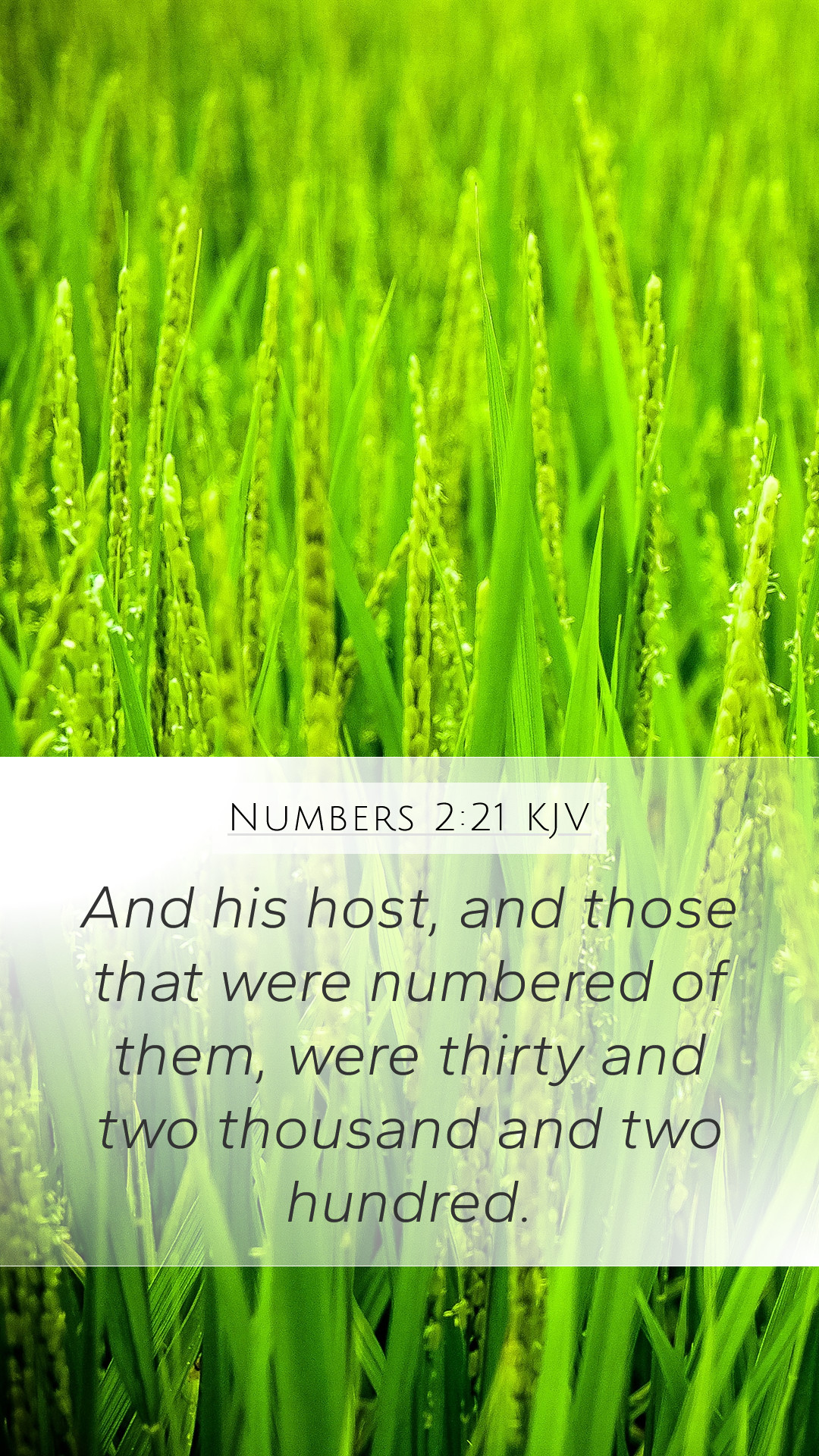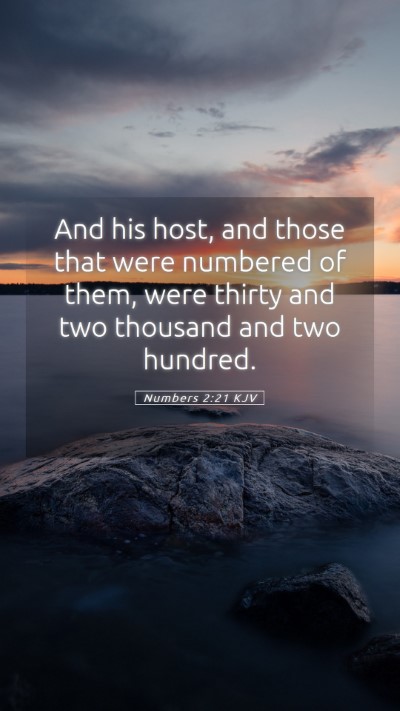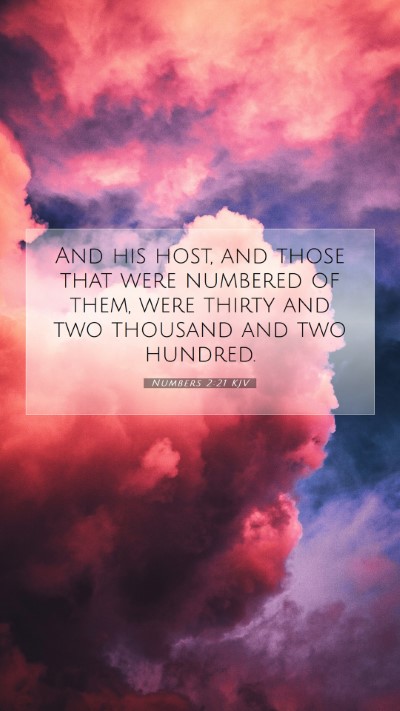Understanding Numbers 2:21
Bible Verse: Numbers 2:21 - "Those who camp next in line are the tribe of Manasseh, the son of Joseph. The leader of the people of Manasseh is Gamaliel son of Pedahzur."
Bible Verse Commentary
This verse is part of a larger passage in the Book of Numbers that describes the organization of the Israelite camp during their wilderness journey. The camp arrangement reflects not only the importance of the tribes but also their historical and spiritual significance.
Key Themes in Numbers 2:21
- Tribal Organization: The mention of the tribe of Manasseh highlights the importance of structure within the community of Israel.
- Leadership: Gamaliel's designation as a leader paired with Manasseh's tribe indicates the responsibility bestowed upon tribal leaders for guidance and governance.
- Lineage and Trust: This verse emphasizes the significance of lineage in the allocation of roles and responsibilities, showcasing God’s order in the community.
Insights from Public Domain Commentaries
Matthew Henry's Commentary
Henry illustrates that the placement of each tribe around the Tabernacle holds theological significance, reinforcing the centrality of God in the lives of the Israelites. He remarks on how the tribe of Manasseh represents part of Joseph's legacy and underscores the role of divine providence in Israel's organization. Henry draws attention to the fact that the leader chosen, Gamaliel, is a demonstration of both merit and divine appointment, ensuring that each tribe has a capable leader during their journey.
Albert Barnes' Notes on the Bible
Barnes elaborates on the historical context behind the tribe of Manasseh, explaining that it was one of the two tribes descended from Joseph, emphasizing their importance in the narrative of Israel. He notes that leaders like Gamaliel were chosen not only for their status but also for their capabilities in leadership. Barnes provides insights into the nature of these camps as more than mere logistics but as a significant reflection of the Israelite identity and their relationship with God.
Adam Clarke's Commentary
Clarke discusses the logistical aspects of the camp being organized by tribes, which facilitated unity and security during their journey. He points out that the genealogy of Gamaliel, linking back to notable ancestors, implies that God honors and remembers the faithful leadership of the past. Clarke's analysis underlines that such structures were vital for maintaining order in a large community wandering in the wilderness.
Applications of Numbers 2:21
This verse and the structure it describes can be applied to our understanding of leadership and community in faith today. Just as God arranged tribes in the wilderness, communities of faith today can benefit from recognizing the unique contributions of each member, establishing roles based on spiritual strengths and historical contexts.
Bible Study Insights:
- Understanding roles within the church community can help in organizing ministry tasks more effectively.
- Reflecting on the historical background of tribal leaders can encourage current leaders to seek God's guidance in their leadership roles.
- Involvement in one’s community, guided by a sense of purpose, echoes the ancient practice of structured governance among God’s people.
Cross References
- Exodus 6:15: A reference to the ancestry of the tribe of Manasseh.
- Genesis 48:14: Jacob's blessing of Joseph's sons, which establishes their significance.
- Numbers 10:23: Further elaboration on the roles of leaders from the tribes.
Conclusion
Numbers 2:21 serves as a reminder of the importance of divine order in community living and leadership. By reflecting on the insights of biblical commentators, one can grasp the depth of significance embedded within the organizational structures of ancient Israel, while also drawing parallels to contemporary faith practices.


